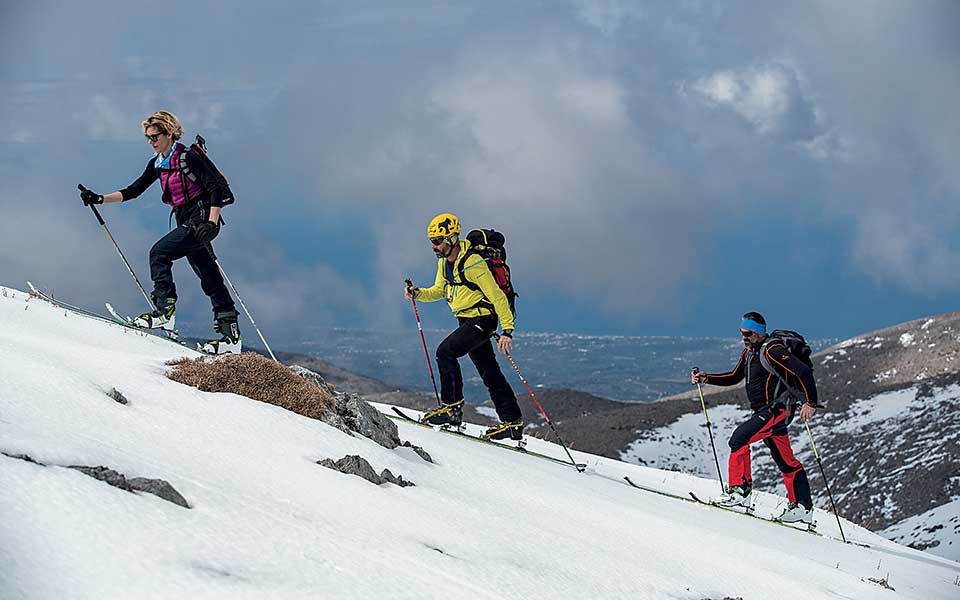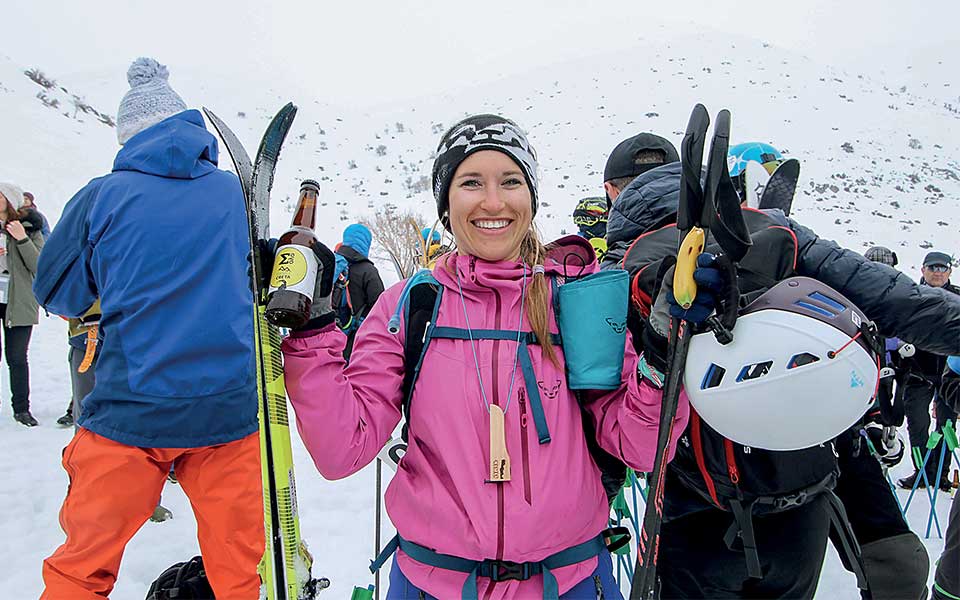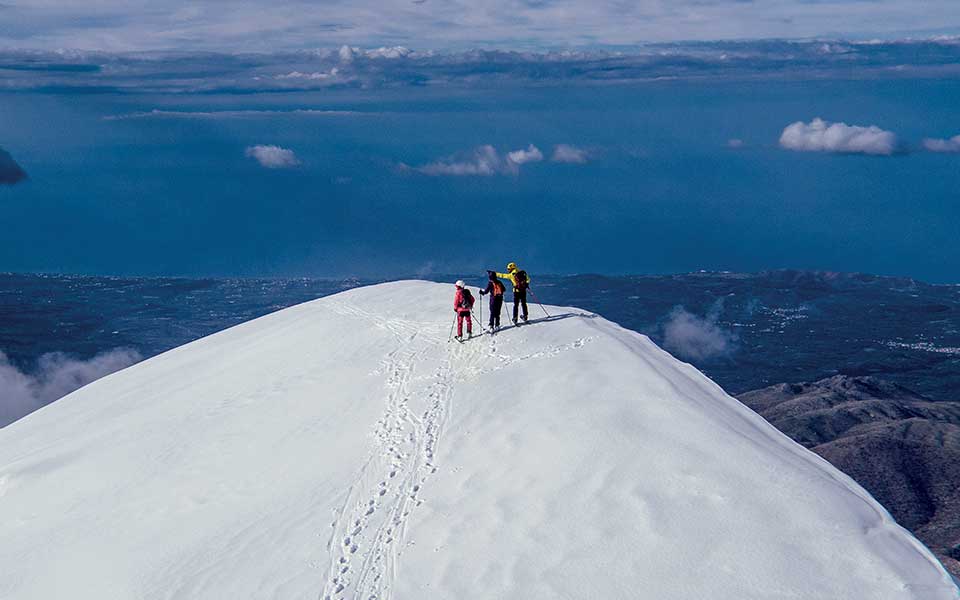“Crete Arising” is a documentary about ski mountaineering in Crete and the Pierra Creta Race held on the island’s tallest mountain, Psiloritis. The director-producer, Greek-American Constantine Papanicolaou, uses the island’s history as a narrative thread in order to show how revolutions in Crete have always started in the mountains, and that the same is about to happen again.
This time, however, it’s a revolution in tourism; Cretans are ready to pick up their ski poles and their skis and show the world that there’s still an unspoiled Crete – far from the tour operators and the all-inclusive seaside resorts – in the heart of the island where shepherds still keep their flocks and make cheese, and where farmers grow fruit and vegetables to supply Greece and the rest of the world.
The trailblazers of this “tourism revolution” are a group of mountaineers who’ve been organizing Europe’s southernmost ski mountaineering event, Pierra Creta, for the last five years.
“It’s barely 30 years since the first Cretans, a small community of young people – guided by two or three pioneers of the previous generation – looked at the mountains from the point of view of mountaineering, and took up winter hiking, climbing and skiing,” Nikiforos Steiakakis, one of the event’s organizers, says.
“Cut off geographically from the rest of Greece, we had little contact with the country’s mountaineering community. When, in 2012, we took part in a race on Mt Parnassos, we were struck by how seriously they took everything at this championship. So we thought we’d liven it up a bit, Cretan-style.
“We decided to hijack the flow of the program and put on an alternative awards ceremony for those who came last. We asked the organizers to call them up by name. We took sheets of paper and wrote, ‘Even those who come last have soul’ and gave them out instead of participation certificates! And the cans of beer we had consumed (of which, admittedly, there were quite a few) we gave out instead of medals. And this was how, in that light-hearted mood, the idea was born to organize races on our own mountains, where we’d ski, too, but mostly, where we could show others how to have fun the Cretan way.”

© Frozen Ambrosia
Beginnings are always hard. Mainlanders mocked: “How can there be snow in the Libyan Sea?” Local people sneered that, “some dudes in colorful leggings” would have little success approaching the unpolished residents of the villages of Psiloritis – Anogeia, Zoniana, Livadia – communities with a reputation of both lawlessness and gun ownership.
Nonetheless, the group didn’t lose heart. The snow was there, and they found allies, including Father Andreas from Livadia. Sporting snow boots, he helped convince young and old alike that ski mountaineering is not only fun, but could also be used to promote sustainable tourism development. The locals, seeing that the mountains could be used for more than farming, were glad for a chance to change the area’s reputation as a place “outside the law.”
The first year, seventy-three people turned up for the event. The well-known French mountaineer Christophe Moulin, invited to attend, couldn’t contain his enthusiasm. He predicted that, within five years, this would be an event that all of Europe would want to take part in, and he was right.
This year, the fourth time the event was held, 200 people, including 58 foreigners from a total of 11 different countries, took part. The race consisted of two routes: a ski mountaineering race for top athletes (1,800m elevation difference with technical passes), and a shorter route for those taking part in a more amateur capacity (1,000m elevation difference).
And, as always, the fun element was at the fore. In place of energy bars, there were delicious bananas from Arvi (a local variety), and rakomelo (a mix of raki with honey) was substituted for energy drinks. The prize was a beer created for the event in partnership with a local microbrewery, which you could only drink if you worked out how your medal could be used as a bottle opener.

© Simone Binder
“Psiloritis is an iconic Mediterranean mountain,” says Steiakakis, “and, what’s more, it’s a ski resort-free zone. You come here to enjoy a special quality of snow, and to gaze at the sea on the way down. The weather’s mild; the sun’s always shining, even in winter. The aprés ski is just as important: you’ll get to try authentic local cuisine, to drink raki, and to explore the culture of the group here.”
For the organizers of Pierra Creta, their progress is encouraging. “For three years, we’ve organized free skiing lessons for children; this year, we even joined the children’s program of the International Ski Federation, which is a global first for a place that doesn’t have a ski resort. We’re communicating the idea that the absence of a ski resort in Crete is an advantage. Ski mountaineering is growing in popularity everywhere; snow lovers no longer want to feel confined to ski resorts. And we have what they want. Paradise, but on a human scale.”












